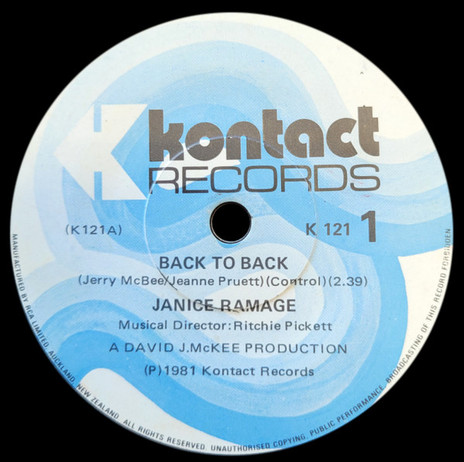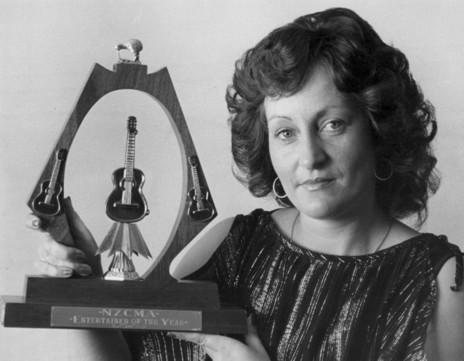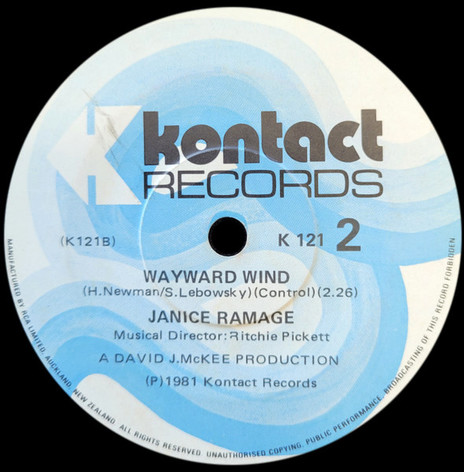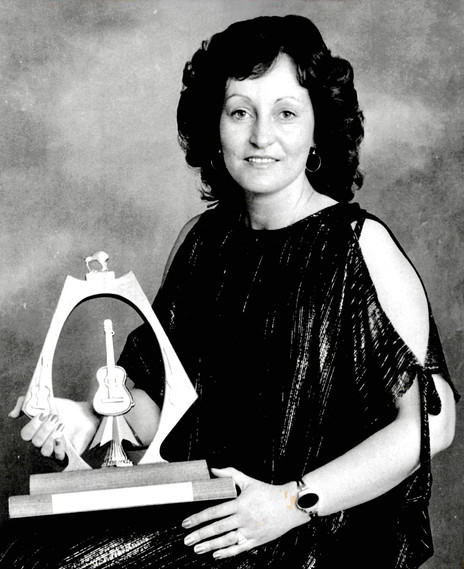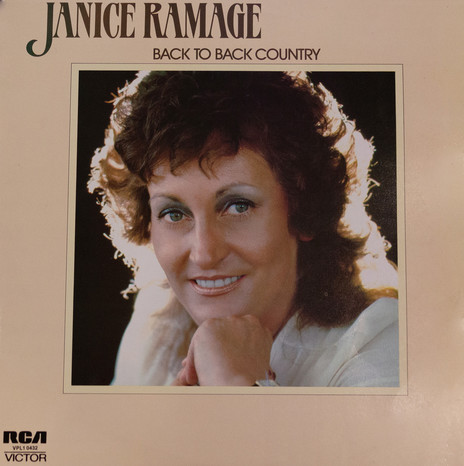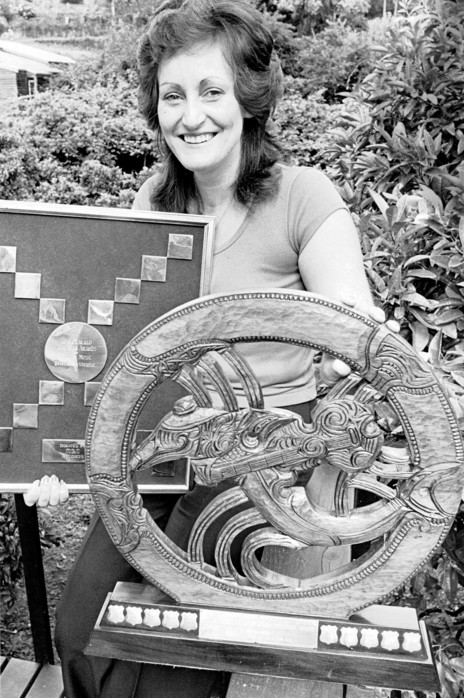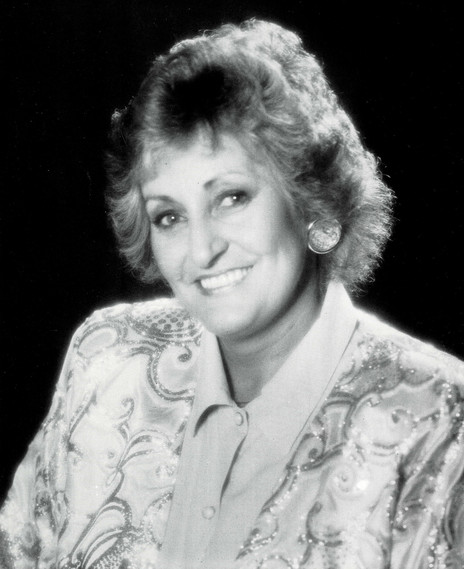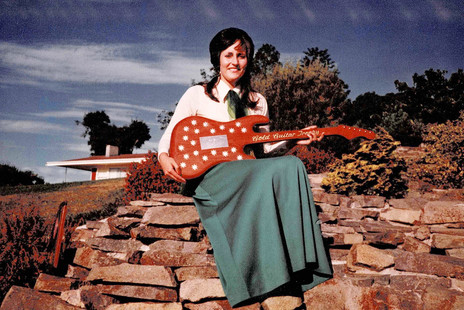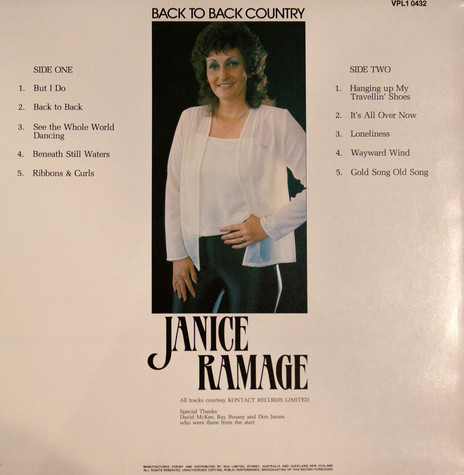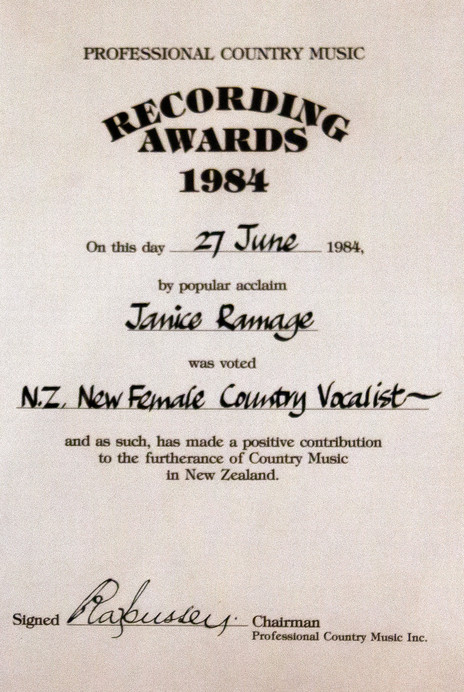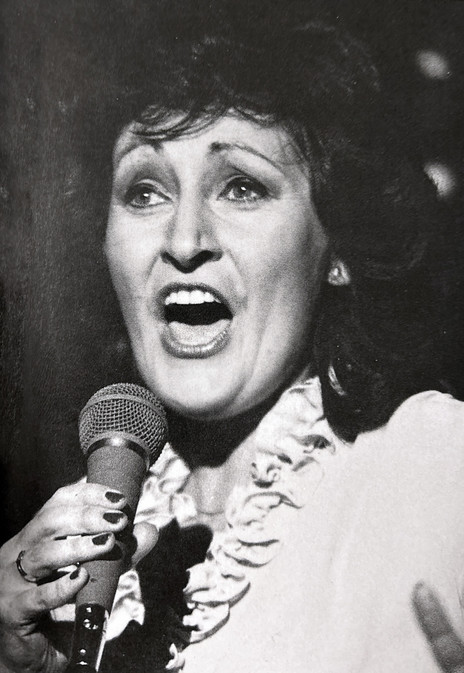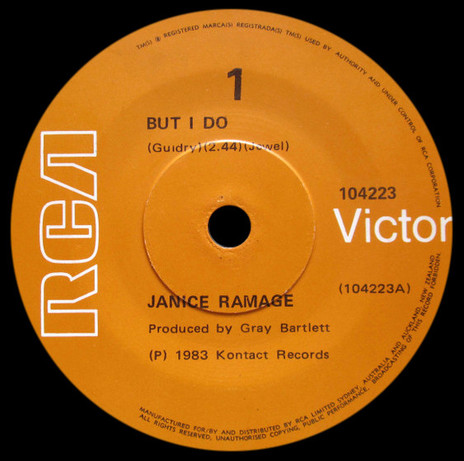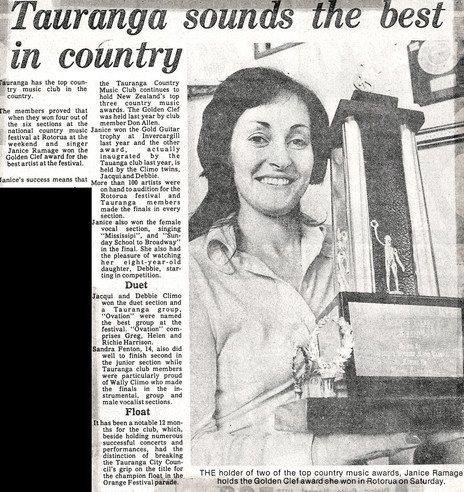Produced and written by internationally renowned guitarist Peter Posa, ‘Loneliness’ was the first of a flurry of 45s that culminated in 1984 with the LP Back To Back Country. Ramage toured and worked with the likes of Billy T James, Maria Dallas, Eddie Low, and Ritchie Pickett before moving to Australia in the same year.
Born Janice Reeves in Invercargill on 4 October 1950, Ramage describes being “brainwashed” by her parents’ Jim Reeves music collection. Convinced there was a family connection, her father announced he had been in contact with Gentleman Jim and arranged a meeting in Dunedin when he toured New Zealand. It never happened.
Her mother Avril played piano for her sisters when, in the late 1940s, they sang three-part harmony as the Hoffman Sisters on The Bill Cherry Show and Uncle Clarrie’s Show on Radio 4ZB in Invercargill.
Janice Ramage learnt ukulele and taught herself guitar and regularly featured in local coffee bars and charity functions. In her early teens she won a 4ZA talent quest judged by national country music sensation John Grenell (then known as John Hore). The prize was six LP records.
But singing was no more than a hobby until Ramage, by now a young married mum, and her family moved to Tauranga in 1974 and joined the Tauranga Country Music Club. Unlike most country music clubs of the time – where singers could attend club nights, put their name down and perform – Tauranga’s club was so popular it had a programme director who would allocate singers a spot in the days prior.
Ramage would make herself physically sick at the thought of performing in front of an audience but slowly conquered her stage fright. In 1976, she won a Rotorua Country Music Club talent quest run over a couple of months. The prize was travel and entry to the New Zealand Gold Guitar Awards in Gore.
In 1976, Ramage won a talent quest; the prize was entry into the Gold Guitar Awards in Gore
In its third year, the awards had been set up with trust money offered to the Gore Country Music Club from the winding up of Country Style Promotions. The inaugural winner in 1974 was supermarket worker Patsy Riggir, and Joy Pirie won in 1975.
Ramage travelled south with her husband David, plus Tauranga Country Music Club president Don Allen and his wife Barbara, who had all entered. The Tauranga contingent cleaned up, with Ramage winning the best female award and the overall Gold Guitar, Don Allen taking out best male and runner-up overall, and Don and Barbara won best duet.
During the next few years, Ramage had more success, being judged best overall at the Golden Clef Awards in Rotorua in 1977, and also at the New Year Awards in Country Music in Napier in 1981.
Her success in Napier qualified her to take part in the New Zealand Country Music Association’s 1981 Entertainer of the Year, which she won. The event had been established in 1979 to crown the best of the year’s overall winners from the various affiliated awards weekends.
RCA distribution manager Ray Bussey, a big country fan, was in high demand with the country music clubs as a competition judge and had taken notice of Ramage’s ascent. Around the time of the entertainer of the year, Bussey introduced Ramage to Dave McKee, managing director of Kontact Records, which RCA distributed.
McKee put Ramage into Stebbing Recording Centre with producer Peter Posa, who wrote her a song called ‘Loneliness’, echoing the marriage break-up she was going through. The single purred with the meticulous Posa touch and the cream of the Stebbing session musicians. The flip side was a country reworking of the Bobby Womack/Rolling Stones number ‘It’s All Over Now’.
During the weekend of the 1981 Telethon, Ramage and Posa performed ‘Loneliness’ on the telecast from Hamilton, after which Ramage drove New Zealand’s newest country star Patsy Riggir and her musical director Ritchie Pickett to appear at a fundraiser at the Tauranga Town Hall. When they arrived, the car park attendant wasn’t going to let them through until Pickett piped up: “There are three country music queens in this car, so you’d better find us a park!”
Two more Kontact singles followed in 1981 (‘Back To Back’ b/w ‘Wayward Wind’, and ‘Hanging Up My Travellin’ Shoes’ b/w ‘Still Waters’), both produced by McKee with Pickett as musical director, and recorded late at night during downtime at Mandrill Studios. ‘Back To Back’ was a recent American hit for Jeanne Pruett that Ray Bussey had suggested to Ramage.
Joining the stable of Gray Bartlett’s Country Gold Promotions – the home of Brendan Dugan and Jodi Vaughan – Ramage also got work through Peter Heremaia’s Country Promotions. Along the way she toured with and supported the likes of Bartlett, Dugan, Vaughan, Billy T James, Australian rock’n’roll pianist Jade Hurley, The Drifters, Ritchie Pickett and Eddie Low.
To promote a 1984 tour, Low and Ramage released a cover of ‘Dream Lover’ on RCA Victor.
Ramage found Billy T James extremely shy but an absolute gentleman, and Hurley a prickly character who kept to himself, while Pickett was just downright naughty. Ramage was there when Pickett incurred the wrath of Gray Bartlett for carving his band’s name into the boardroom table at the Papakura RSA. Later, it was Ramage who Pickett called when he needed the names of more deceased country music stars as he was writing his best-known song ‘Honky Tonk Heroes’.
Janice Ramage appeared just once on ‘That’s Country’, alongside Ritchie Pickett and host Ray Columbus
Ramage made just one appearance on the popular That’s Country TV show, alongside Pickett, host Ray Columbus, Noel Parlane, Maria Dallas, John Grenell, Suzanne Prentice, Jeff Rea, and Nashville star Gary Morris. On the same episode, Rea and Morris met, which led to Rea’s decade-long career in Morris’s touring band in the United States.
On one occasion, on a package with Maria Dallas on Auckland’s North Shore, Dallas was afflicted by laryngitis. She took to the stage barefoot and danced and lip-synced while Ramage sung her songs from the wings.
Kontact licensed two further Ramage singles to RCA Victor: ‘See The Whole World Dancing’ b/w ‘Autumn Winds & Summer Rains’, produced by Ritchie Pickett, in 1982, and Clarence Henry’s ‘But I Do’ b/w ‘Ribbons & Curls’, produced by Gray Bartlett, in 1983.
With New Zealand country music on the crest of a wave thanks to the exposure of its artists on That’s Country, Bussey and others founded the Professional Country Music Association of New Zealand. At their first industry awards in 1984, Ramage was named best new New Zealand female country vocalist. Pickett, by then fronting The Inlaws, won the male equivalent. Unfortunately, with the demise of That’s Country later that year, the awards show didn’t last much longer.
Also in 1984, the previously released singles and the Bartlett-produced ‘Gold Song, Old Song’ were pulled together for the album Back To Back Country on RCA Victor. The record was devoid of musician or producer credits, and there were no liner notes except for a special thank you to Ray Bussey, Dave McKee and RCA marketing manager Don James “who were there from the start”.
By now Ramage had a new partner, Michael Roughan, and the pair decided to move to Australia in 1984. They spent time in Sydney and Brisbane and married in 1986. Although she initially enjoyed some success in local country music awards, Ramage decided to concentrate on her family and a lengthy career as an executive PA for Qantas in Sydney.
When Michael Roughan’s company won the tender for a big construction project in Auckland in 2013, the couple took the opportunity to retire back to Tauranga, where they now live in a retirement village and Janice has taught around 25 of the residents to play ukulele. She returned to the Tauranga Country Music Club and still performs at other retirement villages and care facilities.
